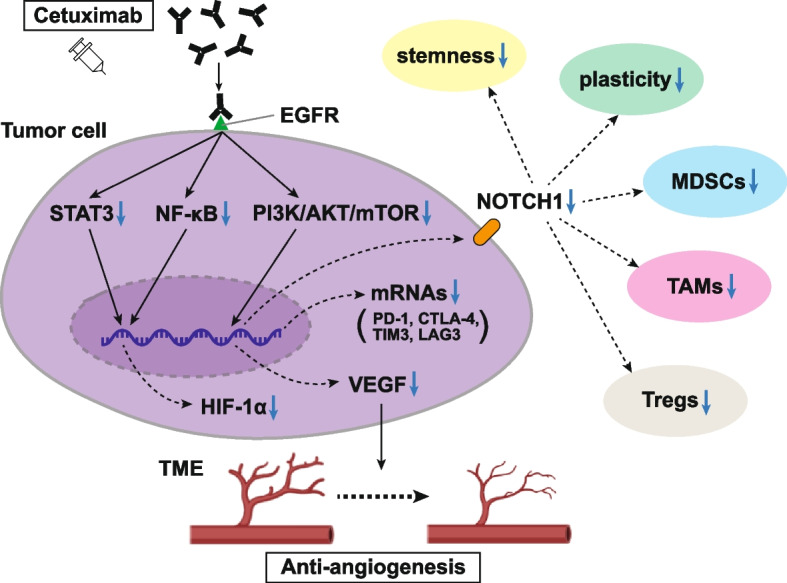Fig. 3.

Neovascularization suppression and TME modulation by cetuximab. Treatment with cetuximab suppresses tumor-induced neovascularization in HNSCC. Increased EGFR expression shows a correlation with increased HIF-1α level and microvessel density. The previously demonstrated inhibition of VEGF by cetuximab occurs at the transcriptional level in response to reduced levels of HIF-1α. Moreover, cetuximab has been shown to attenuate the secretion of proangiogenic factors in tumor cells, such as VEGF and IL-8. Cetuximab inhibits tumor-induced angiogenesis by downregulating HIF-1α and Notch1, resulting in reduced angiogenesis and tumor shrinkage. The Notch signaling pathway plays an important role in blood vessel formation and remodeling. The inhibition of Notch signaling also reduces the number of MDSCs, TAMs, and Tregs within the tumor and inhibits the mRNA and target protein expression of the most relevant immune checkpoint molecules: PD-1, CTLA4, TIM3, and LAG3
